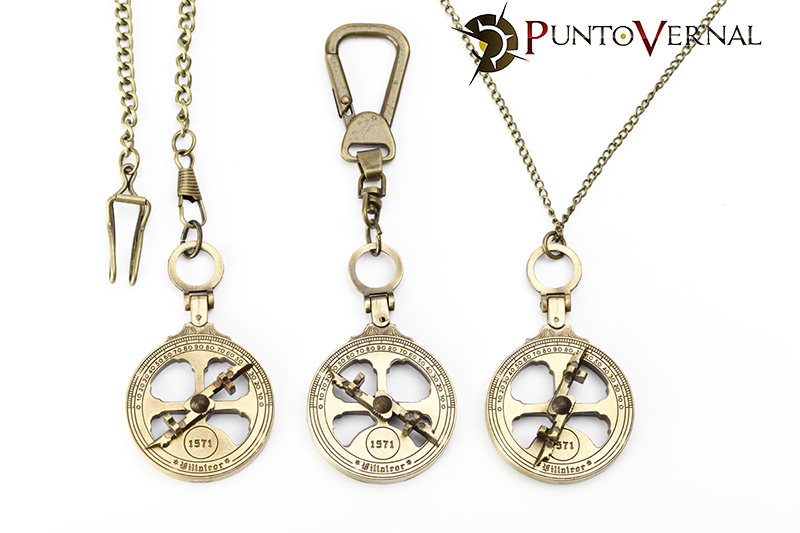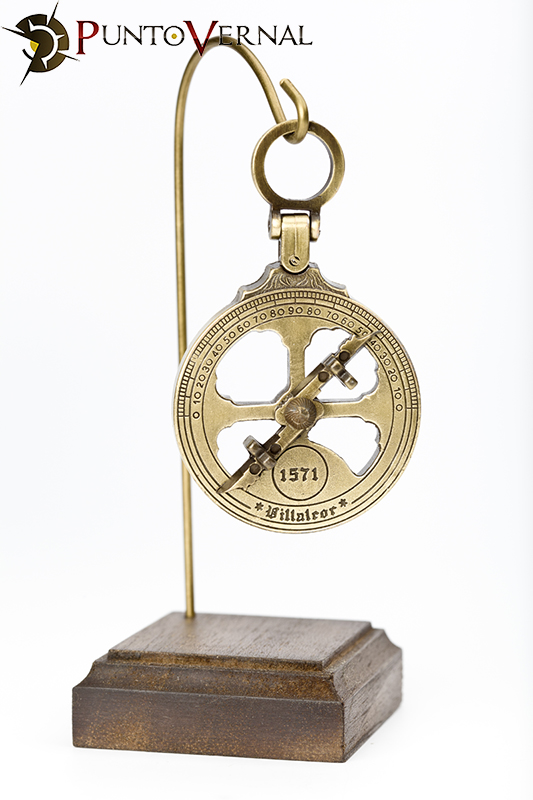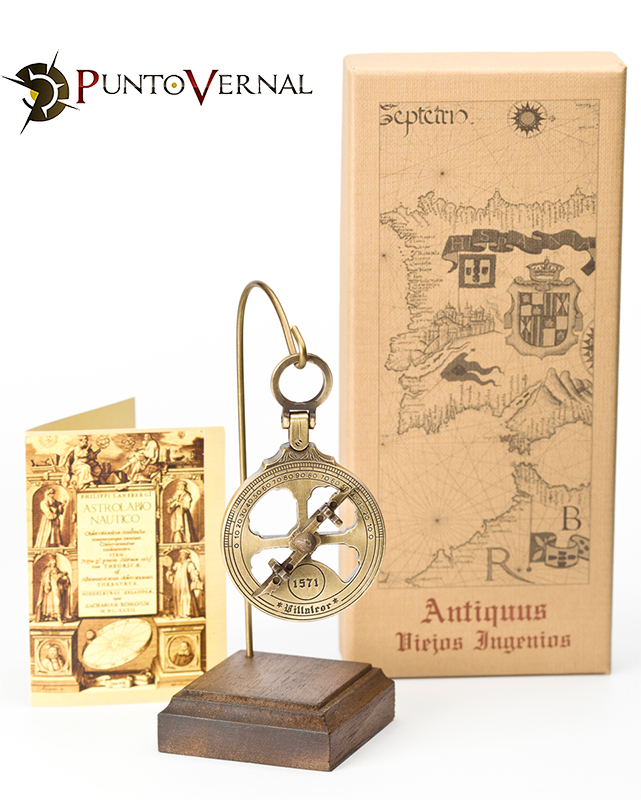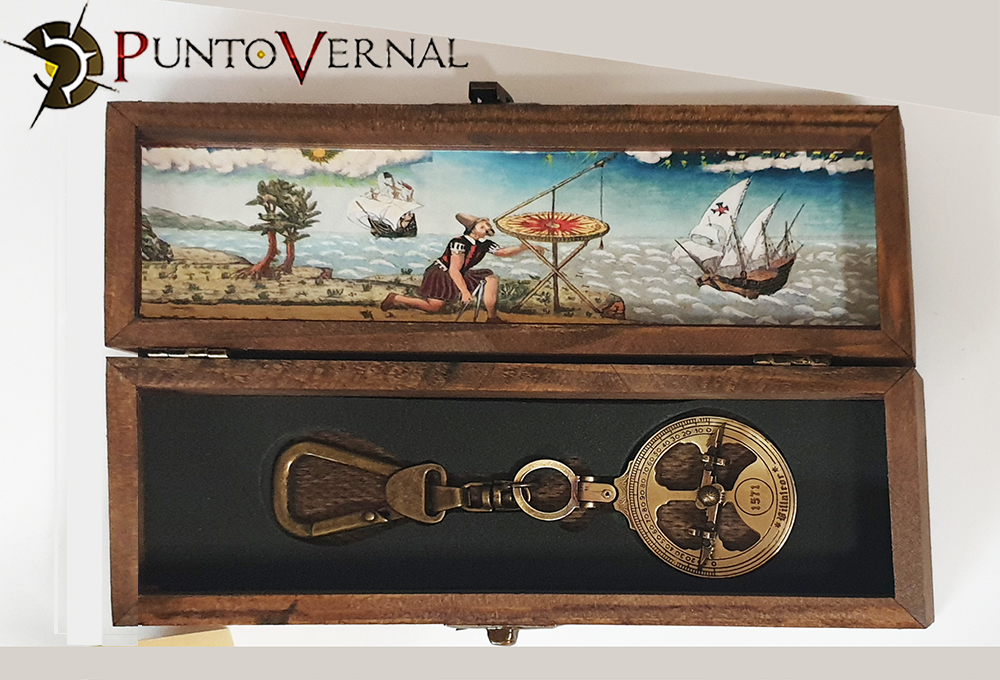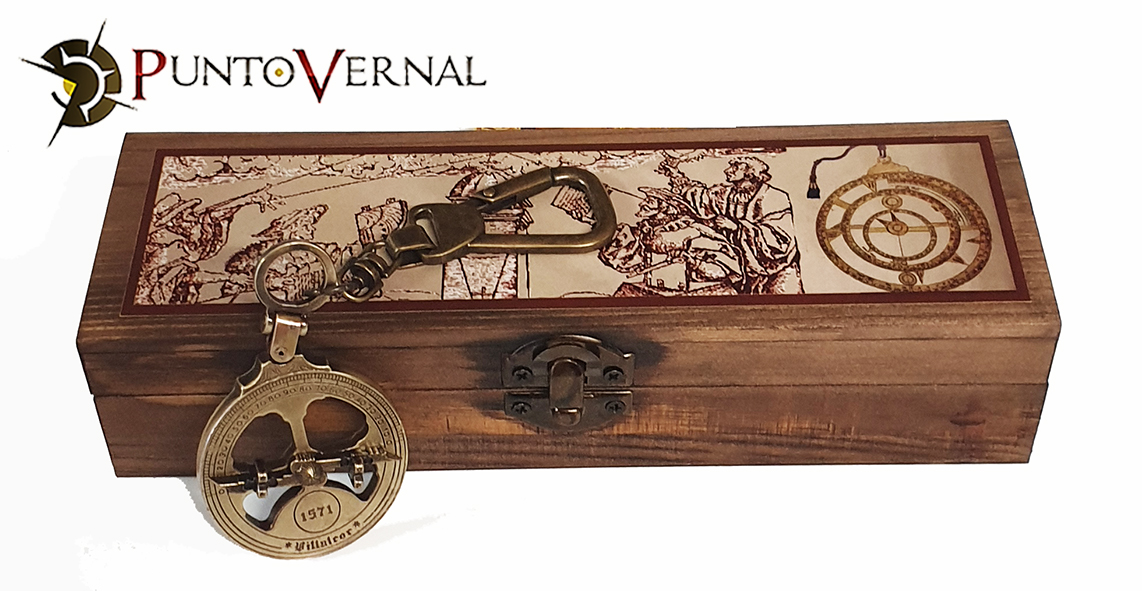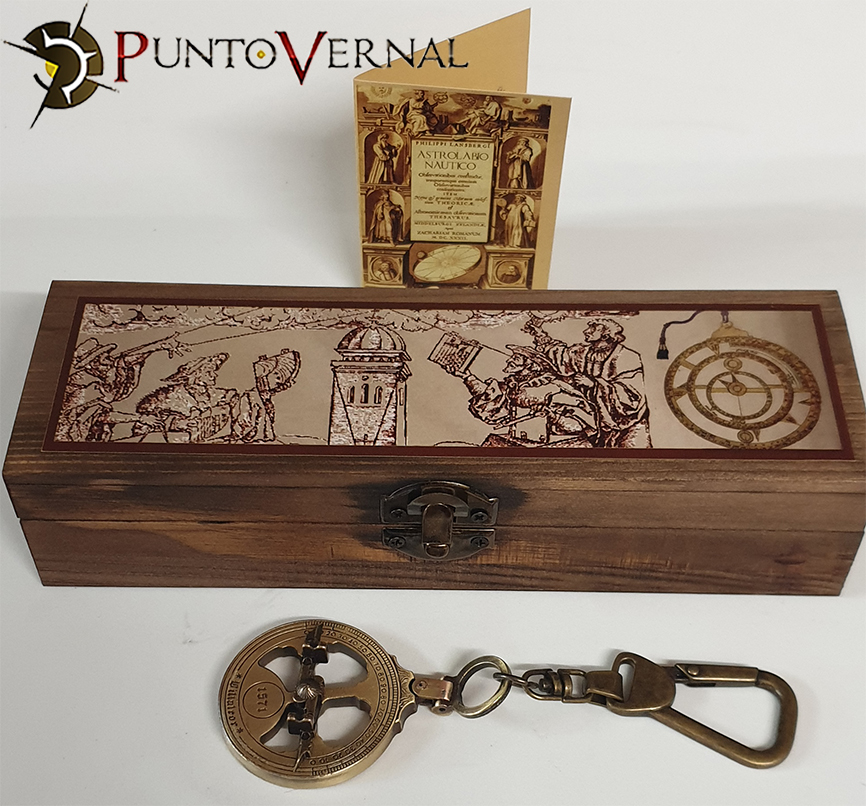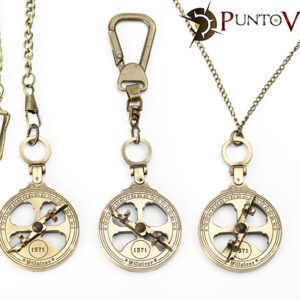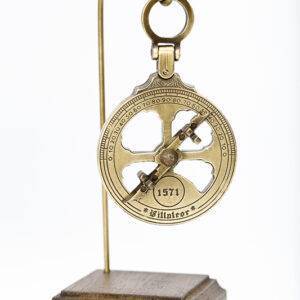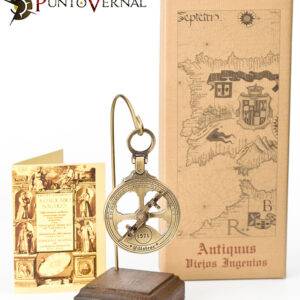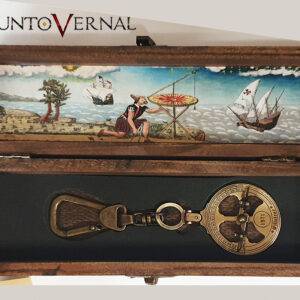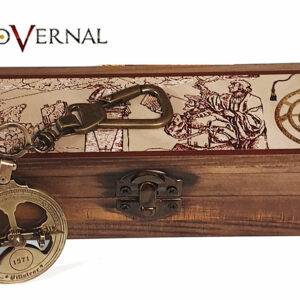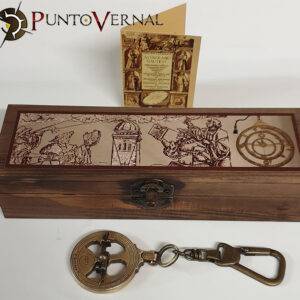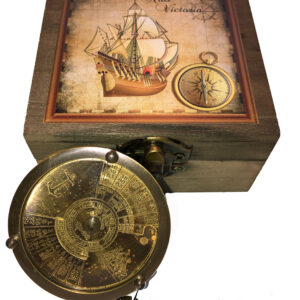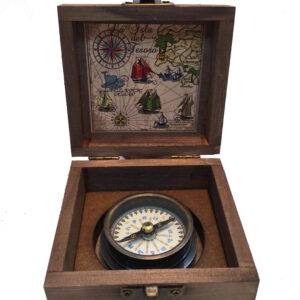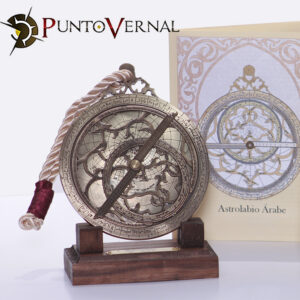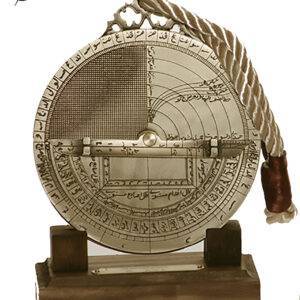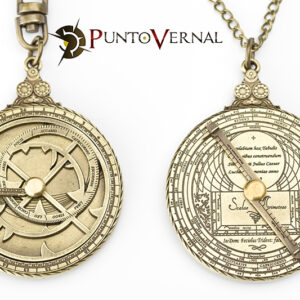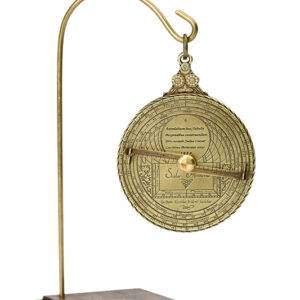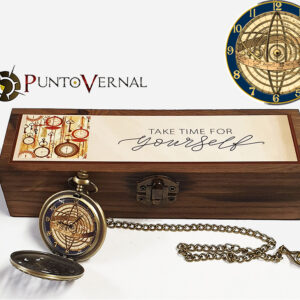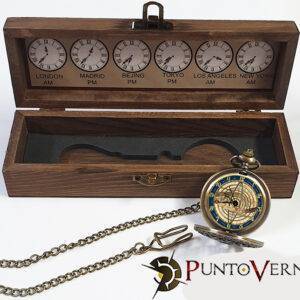NAUTICAL ASTROLABE
The nautical astrolabe is not an astrolabe in the strict sense, being more of an inclinometer with alidade capable of measuring vertical angles.
HISTORY
It was an instrument widely used by navigators during the 16th and 17th centuries to find the latitude of the ship by observing the position of the stars at a specific time of day.
The first date of its first description is made in the year 1295, by the Mallorcan astronomer Ramon Llull; However, we owe the first rigorous and scientific study to the Spanish cosmographer specialized in navigation: Martín Cortés de Albacar, who in 1551 published a complete study on this instrument in his “Art of Navigation”. It is composed of a perforated metal disc, in order to let the wind pass through it so that the astrolabe could remain as vertical as possible to carry out measurements with greater precision.
PRESENTATION
The one that Punto Vernal reproduces is a replica of the one found on a Spanish ship sunk off the coast of England and belonging to the so-called “Invincible Armada.” It is made of metal bathed in old brass and is accompanied by a manual with its history and instructions. It comes in a beautiful gift box.
We have four different modalities:
– key ring
– pendant
– loop or clip
– On a wooden base (see photo in modalities)
Measures:
Length (including key ring) 10 cm
diameter: 4.2cm
thickness: 0.5cm
https://en.wikipedia.org/wiki/Mariner%27s_astrolabe
Watch video

